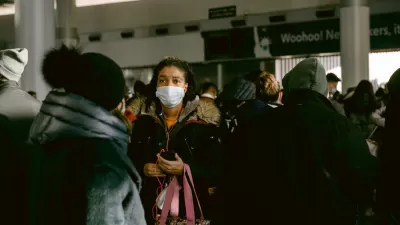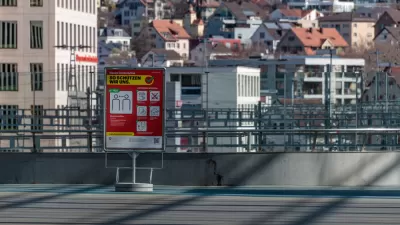The Dirt reports on findings disclosed by this year's iteration of the Yale and Columbia University produced Environmental Performance Index (EPI). A new metric unveiled this year tracks the trend in each country's environmental performance.
This year marks the seventh iteration of efforts by the two Ivy League universities to "provide science-based quantitative metrics as an aid to achieving long-term sustainable development goals." The EPI "ranks 132 countries on 22 performance indicators spanning ten policy categories, which track performance and progress on two broad objectives: environmental health and ecosystem vitality. The index is heavily weighted towards indicators of ecosystem vitality (70 percent), with the rest of a country's performance determined by numbers from environmental health indicators."
Switzerland came out on top of this year's index due to its leadership in "addressing pollution control and natural resource management challenges." The big surprise in the top ten, which is filled with "European countries with high per-capita income levels" is the ranking of 5th place Costa Rica, "a middle-income country that has made significant investments in sustainable development, preserving its natural resources, and reducing pollution."
"The U.S., which ranked a sad 61st place in 2010, is now 49th, which is still much lower than it should be."
The inaugural trend report indicated that most countries have trended upwards between 2000 to 2010. Of those headed in the opposite direction, "Estonia, Bosnia and Herzegovina, Saudi Arabia, Kuwait, and Russia were countries with the worst negative trends. Russia, at the very bottom of the Trend EPI ranking, has suffered a severe breakdown in environmental health as well as performance declines related to over-fishing and forest loss. It shows declines in every category except for slight improvements in sulfur dioxide emissions, though levels are still far below target."
FULL STORY: New Rankings on Environmental Performance

Alabama: Trump Terminates Settlements for Black Communities Harmed By Raw Sewage
Trump deemed the landmark civil rights agreement “illegal DEI and environmental justice policy.”

Study: Maui’s Plan to Convert Vacation Rentals to Long-Term Housing Could Cause Nearly $1 Billion Economic Loss
The plan would reduce visitor accommodation by 25% resulting in 1,900 jobs lost.

Why Should We Subsidize Public Transportation?
Many public transit agencies face financial stress due to rising costs, declining fare revenue, and declining subsidies. Transit advocates must provide a strong business case for increasing public transit funding.

Paris Bike Boom Leads to Steep Drop in Air Pollution
The French city’s air quality has improved dramatically in the past 20 years, coinciding with a growth in cycling.

Why Housing Costs More to Build in California Than in Texas
Hard costs like labor and materials combined with ‘soft’ costs such as permitting make building in the San Francisco Bay Area almost three times as costly as in Texas cities.

San Diego County Sees a Rise in Urban Coyotes
San Diego County experiences a rise in urban coyotes, as sightings become prevalent throughout its urban neighbourhoods and surrounding areas.
Urban Design for Planners 1: Software Tools
This six-course series explores essential urban design concepts using open source software and equips planners with the tools they need to participate fully in the urban design process.
Planning for Universal Design
Learn the tools for implementing Universal Design in planning regulations.
Smith Gee Studio
Alamo Area Metropolitan Planning Organization
City of Santa Clarita
Institute for Housing and Urban Development Studies (IHS)
City of Grandview
Harvard GSD Executive Education
Toledo-Lucas County Plan Commissions
Salt Lake City
NYU Wagner Graduate School of Public Service





























